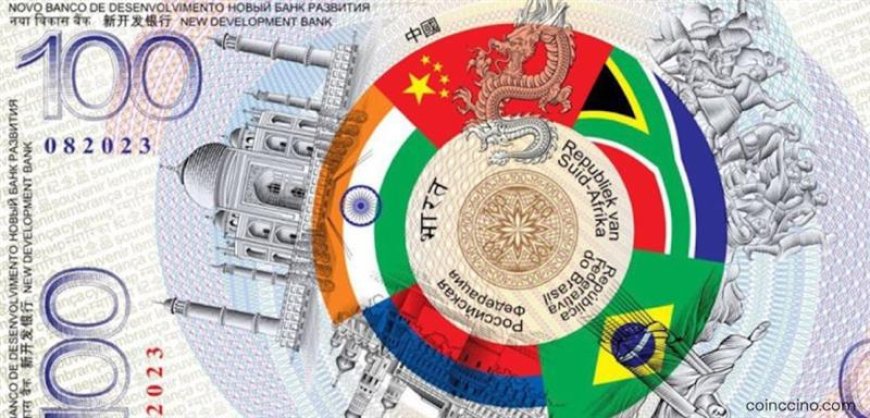Claims of BRICS Digital Currency Replacing the U.S. Dollar Draw Scrutiny, Experts Urge Clarification
An image circulating on social media asserts that China has declared a new BRICS digital currency will someday replace the U.S. Dollar. While the idea fuels speculation around “de-dollarization,” analysts and officials caution that no formal agreement or policy update supports that claim — raising questions about accuracy and intent.

Market Context
The notion of a BRICS-backed currency or payment system has periodically surfaced in geopolitical discourse. With growing frustration over sanctions, currency risk, and dollar dominance, some stakeholders have proposed alternatives. However, the idea remains controversial and is not officially adopted by many BRICS member governments.
In recent years, discussions about cross-border payment alternatives, use of local currencies in trade, or digital / blockchain-enabled platforms (like BRICS Pay) have gained traction. Still, replacement of the dollar as a reserve or settlement currency would require unprecedented coordination, regulatory alignment, trust among member states, and significant technical infrastructure.
Technical Details with Attribution
- According to a fact-check by DigitEye India, claims that BRICS is launching a single common digital currency to replace the U.S. dollar are misleading, and no official declaration has been made.
- Kremlin spokesman Dmitry Peskov has stated that “BRICS is not talking about creating a common currency, nor has it ever done so.”
- China’s national digital-currency efforts (such as its e-CNY) continue independently, but that is not the same as a bloc-wide currency replacing the dollar.
Analyst Perspectives
Some analysts suggest that while the image reflects popular sentiment or aspirations around “de-dollarization,” it should not be taken as policy confirmation. There may be long-term ambitions among certain BRICS stakeholder groups for reduced dependency on the U.S. Dollar, but the timeframes, design, governance and political approval for any such currency would be very complex.
Others warn that rumors like this can fuel market confusion, especially in emerging markets sensitive to currency risk or geopolitical developments. Accurate sourcing, official communiqués, and transparency will be essential before interpreting any shifts as “BRICS replacing the dollar.”
Global Impact Note
If in future a BRICS-aligned digital currency were ever introduced with real traction or usage, it could have profound implications on global finance, trade settlement, reserve currency balances, and the role of the U.S. Dollar. Emerging markets, central banks, sovereign wealth funds, and fintech / blockchain infrastructure providers would need to re-evaluate how they design cross-border payments, reserves, and risk mitigation.